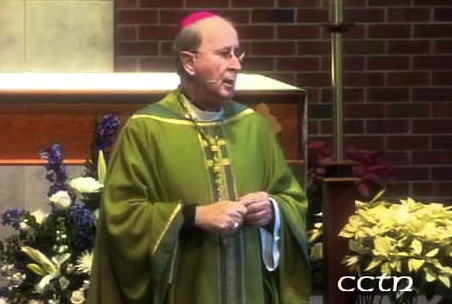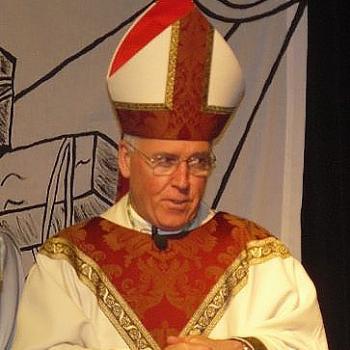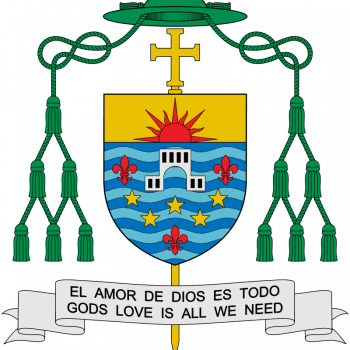
Bishop John Noonan made a videotaped pitch to the faithful last weekend in support of religious freedom — but also in support of two amendments being placed before voters in November.
Appearing via a nearly 11-minute video produced by the diocese, the chief shepherd of nearly 400,000 Catholics throughout the region explained the church’s ongoing opposition to certain provisions of the Patient Protection and Affordable Care Act.
Catholic leaders in recent weeks have criticized the law for forcing the church to go against its tenets by funding health insurance that covers contraception and abortion.
Near the end of the video Noonan discussed religious freedom in a different context — one that likely surprised some of the faithful.
The bishop expressly urged Catholics to vote for two proposed amendments to the Florida Constitution. One would forbid spending taxpayer money on abortion, while the other would prohibit the denial of government benefits to people or groups based on religious grounds.
“Let us vote responsibly in the elections in November and particularly ‘yes’ for (those amendments),” he added.
Churches that engage in politicking flirt with losing their tax-exempt status, and at first glance, it would appear a member of the clergy encouraging his flock to vote one way or another would qualify.
But some observers say Noonan and his message are in the clear because he is in effect lobbying for a cause and not a candidate.
According to the IRS, Congress passed a law in 1954 that prohibited nonprofit groups, including charities and churches, from getting involved in political campaigns.
Michael Dobzinski, spokesman for the IRS in Florida, said the agency cannot comment on the specifics of Noonan’s message. But he pointed to agency regulations that indicate the key distinction in such instances boils down to people. Tax-exempt groups like churches can advocate one side of an issue, such as opposing taxpayer-funded abortions, that might highlight differences between candidates but cannot openly back candidates who agree with their position on that issue.
Noonan was lobbying Catholics, the largest denomination in Marion County, to support Amendments 6 and 8 in November.
IRS regulations draw the line for churches’ political activity between what the agency calls “political campaign intervention” and legislative activities.
Federal tax collectors define intervention as openly endorsing or opposing a candidate, passing out statements prepared by other groups that favor or oppose a candidate, donating to a candidate’s campaign, or allowing a candidate to utilize an organization’s facilities without doing so for other candidates.
Legislative activities, on the other hand, are essentially defined as lobbying.
Although churches are restricted in those efforts, they are not banned from practicing them.
Two groups that would likely oppose Amendments 6 and 8 declined to comment on Noonan’s message.
Read more. And you can watch the videotaped message for yourself below.















